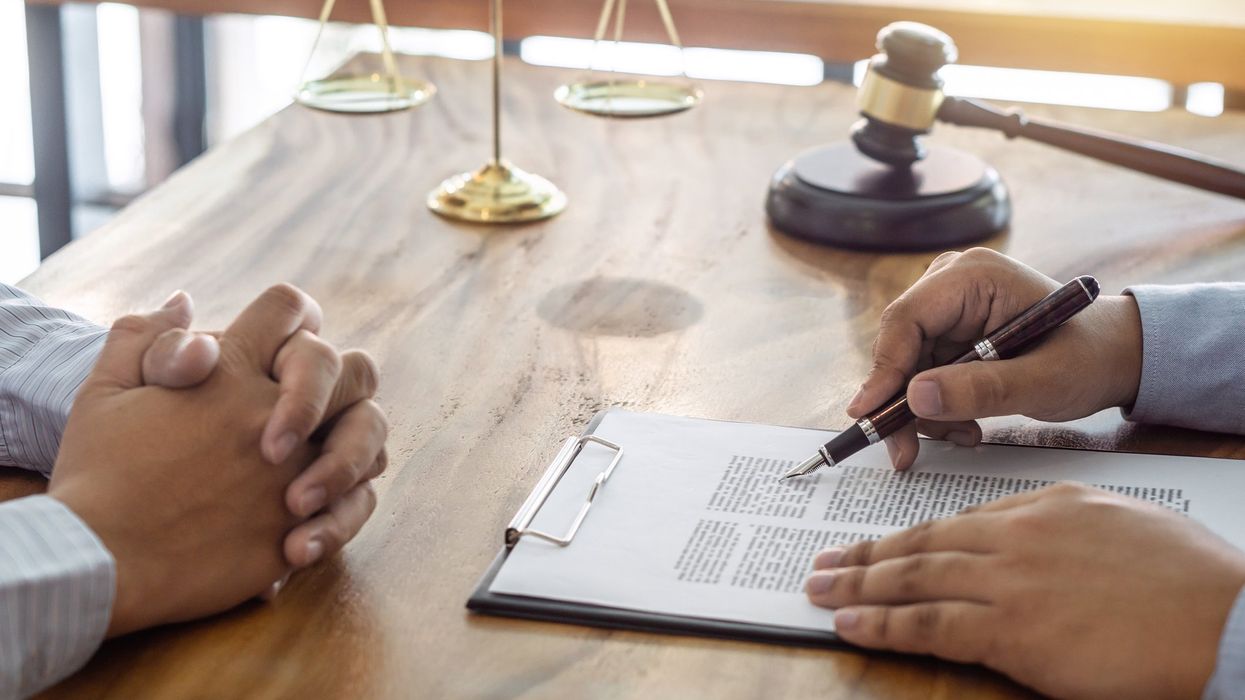Americans are often rendered less free, and more stuck because of an inaccessible legal system. Let’s pick on Washingtonians. Citizens of the Evergreen State should theoretically have nearly unparalleled access to justice. Thousands of excellent lawyers call Washington home. The state kickstarted a Pro Se Project overseen by an Access to Justice Board. It was also the first state to adopt a Limited License Legal Technician Rule to increase the odds of pro se litigants receiving some legal advice in certain matters. Yet, there’s a lot of room for progress.
Nearly two-thirds of all parties to family law disputes in Washington come to court without a lawyer. Pro se litigants tend to lose at much higher rates than those in a similar position who have secured representation. That’s a big deal when you’re fighting for custody of a child, for ownership of a home, for being underpaid—for defending your life, liberty, and pursuit of happiness.
This disparity should not exist in Washington (nor across the U.S.). Washington’s failure to ensure that the legal system works in favor of liberty rather than as a source of stuckness is particularly jarring because of a unique provision in the state constitution. Pursuant to Article I, Section 10, “[J]ustice in all cases shall be administered openly, and without unnecessary delay.” You might think that this constitutional guarantee merely affords citizens greater transparency and a functional court system. The Washington Supreme Court adopted that view in Shea v. Olson. In that 1936 decision, the Court narrowly interpreted the Section—concluding that it did not provide a right-to-access provision akin to those in other constitutions. Critically for the Court, the Article did not specify that “every person shall have remedy by due course of law for injury done to him in his person, property, or reputation.”
Perpetuation of this flawed reading has deprived generations of Washingtonians of a better justice system. As former Washington Supreme Court Justice Debra Stephens thoroughly and expertly argued in a 2016 article, Section 10 is a direct product of a much longer legal lineage. Justice Stephens traces Section 10 back to the Magna Carta, to the teachings of Lord Edward Coke, and to the writings of Sir William Blackstone. Coke, for example, maintained that justice must have three qualities:
“It must be . . . free; for nothing is more odious than justice let to sale; full, for justice ought not to limp, or be granted piece-meal; and speedily, for delay is a kind of denial; and then it is both justice and right,” wrote Coke.
This understanding of justice likely reached the ears of early Americans as well as delegates to the Washington State Constitutional Convention, according to Justice Stephens. The delegates likely also had Blackstone’s famous commentaries when authoring Section 10. Blackstone contended that rights mean little if there is no remedy to enforce them. Individuals require “means of vindicating [their rights].” Compiling that evidence and more, Justice Stephens reasons, “[I]t is difficult to justify a crabbed reading of [Section 10].”
Other justices have at times agreed with at least a portion of Justice Stephens’ argument. In a 1991 decision, for instance, the Court asserted that Section 10 prevented the state legislature from curtailing a litigant’s right to discovery. The Court explained that justice is “the bedrock foundation upon which rests all of the people’s rights and obligations.” It also recognized that “governments [including the Washington state government] are established to protect and maintain individual rights.” Despite these bold and, arguably, broad statements, the Court later refused to substantially increase the reach of Section 10. Under existing precedent, the legislature may “restrict, modify or eliminate causes of action entirely based on providing a substitute remedy or demonstrating a strong public necessity to do so.”
Yet, there are seeds of a potential revival of Section 10’s intended reach. One seed came in 1969, when the Court waived a filing fee to increase the ability of indigent litigants to pursue their claims. Another came in 1973, when the Court took issue with excessive costs to appeal a lower court’s decision. Those seeds have unsurprisingly yet to blossom in a tree upon which Washingtonians can make a strong case for access to the courts. Neither of the aforementioned decisions explicitly relied on Section 10 when striking down the barrier to justice at issue.
If full access to the courts cannot be realized in Washington, that spells trouble for the rest of the country. Justice Stephens’s article paves the way for a future Washington Supreme Court to restore Section 10 to its intended meaning. Full access to the courts cannot happen magically. Lawyers would have to take their obligation to Washingtonians far more seriously. Under the existing Rules of Professional Conduct, members of the Washington State Bar “should aspire” to complete 30 hours of pro bono work a year. It is unclear to me how this aspiration aligns with the fact that those same rules specify that “[a] lawyer, as a member of the legal profession, is a . . . a public citizen having special responsibility for the quality of justice.” Surely the quality of justice warrants at least a week’s worth of pro bono hours!
The key takeaway from this essay is that there are existing tools to counter a sense of stuckness—that the pathways to brighter days are closed or accessible only to a few. Those tools are often hiding in plain sight. With a little popular awareness, these tools can go a long way toward increasing the ability of every American to experience freedom to the fullest extent.




















Trump & Hegseth gave Mark Kelly a huge 2028 gift